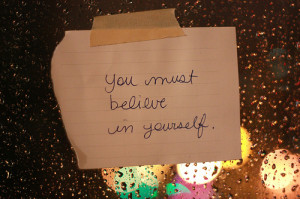“Arrogance and self-awareness seldom go hand in hand.” – M, Casino Royale
You probably wanna be confident, and for people to see you that way. But you don’t want to be or come across as arrogant. Nevertheless, while striving for confidence, it’s easy to slip into arrogance, and thus get a negative reputation instead of a positive one.
This is why a discussion about the difference between confidence and arrogance makes sense. In it, I’ll be drawing from my know-how in psychology, as well as my 8+ years of experience as a confidence and communication coach.
Right from the start, I wanna state that there is no clear distinction between confidence and arrogance. These two traits run on a continuum, and to some extent, where one ends and the other begins is a matter of personal opinion. What one person may see as confident, another may see as arrogant.
However, there are patterns of social behavior that will be seen by most people as confident, and patterns that will usually be seen as arrogant. In order to understand them, it’s best to first get a good idea of the distinct mental foundations of confidence and arrogance.
The Confident Mindset vs. the Arrogant Mindset
Confident people typically operate from a very different psychological mindset than arrogant people. By understanding their mindsets, it’s much easier to tell them apart.
Confident people tend to see themselves as unique, capable and likable individuals, which gives them the courage to be outgoing and put themselves out there authentically. But they also know they have flaws, and they can be okay with them. They also know some people will simply not like them, and they can accept that too.
Arrogant people on the other hand, tend to see themselves not just as able, but as perfect. They think they are superior to everyone else, everybody should like them, and they deserve special treatment, all the time. It’s an exaggerated mindset, which leads to exaggerated social behavior.
Behind this self-image of perfection, deep down, arrogant people are often quite insecure. Many lack self-esteem or have an inferiority complex. So acting as if they’re perfect and deserve special treatment is just an attempt to get attention and social validation, in order to compensate for their feelings of inadequacy.
If you see yourself even partially in the arrogant mindset, I recommend you check out this special presentation, in which I’ll show you how you can shift your mindset effectively and build solid social confidence, using my own tried & tested method.
 Based on these two distinct mindsets, you can deduce some of the differences between confidence and arrogance yourself, as they manifest in people’s behavior.
Based on these two distinct mindsets, you can deduce some of the differences between confidence and arrogance yourself, as they manifest in people’s behavior.
To visibly enrich the picture though, I will add my own practical conclusions.
The Behavioral Difference between Confidence and Arrogance
Here are some of the 7 key ways confident people and arrogant people typically behave differently:
- Confident people are generally friendly and willing to talk to a variety of people.
- Arrogant people are much more selective regarding who they talk to, often based on surface traits such as looks, clothing, or status symbols.
- Confident people are talkative and they like to share themselves, but they’re also good listeners and they like to get to know others.
- Arrogant people like to talk constantly in conversation, and they rarely care to listen. For them, conversation is all about them.
- Confident people disclose themselves wholeheartedly. They talk about the good and the bad about themselves.
- Arrogant people actively hide their flaws, but they constantly bring up their accomplishments, often embellishing them. They don’t so much talk, as brag.
- Confident people compliment and appreciate others, but they can also give them a negative feedback when useful, or tease them playfully.
- Arrogant people only do the negative part. They frequently judge, criticize, mock or put others down, whether present or absent, so they can feel superior.
- Confident people ask for help, but they also give help back. Their relationships run on fair, reciprocal support.
- Arrogant people demand, take, take some more, and even expect to be given without asking, but they rarely give back. They see their mere presence as sufficient reward.
- Confident people are honest and they keep their promises. They often feel remorse when they hurt others and they try to show it.
- Arrogant people lie, manipulate, break their promises and make excuses. They rarely apologize when hurting others, as they never see it as their fault.
- Confident people have an assured but relaxed and open body language in social settings, most of the time.
- Arrogant people have a body language that’s typically inflated, meant to convey superiority and dominance. A slightly raised chin is like their trademark sign.
Taken together, all these differences in behavior between confident and arrogant people form two very distinct pictures. Pay attention to these differences, and you’ll be able to accurately tell apart arrogance from confidence.
If you believe you’re on the arrogant side, you can work on deliberately changing your behavior following the list above, to lean more towards the confident side.
Keep in mind though, that your behavior is ultimately a result of your feelings and mindset. So, by far the best way to be able to regularly act like a confident person is to actually be a confident person on the inside.
Becoming this person means overcoming deep personal insecurities and acquiring the right mindset, at both a conscious and subconscious level. This is a whole process and it will take some work, but it is well worth doing.
To help you take the right steps in this confidence gaining process, I’ve created this instructional video, which I recommend you watch right now.
In this video I will show my step by step method to change your mindset and build a strong level of social confidence, which others around you will plainly be able to notice. This method has helped hundreds of people I’ve coached privately, and I’m certain it will help you as well.
Confidence is a great trait to have, but when it slips into arrogance, it become toxic. That’s why it’s essential to stay on the right path.
For more practical advice on confidence and communication from me, please join my free newsletter.
 Why is this? Here’s the explanation.
Why is this? Here’s the explanation. Not being serious about gaining confidence isn’t necessarily a bad thing. Maybe your level of confidence is actually pretty good, and there are just some specific areas where your confidence is a bit lacking. And this lack of confidence isn’t really affecting your life that much, so it’s hard to gather the motivation to do the work required to gain more confidence.
Not being serious about gaining confidence isn’t necessarily a bad thing. Maybe your level of confidence is actually pretty good, and there are just some specific areas where your confidence is a bit lacking. And this lack of confidence isn’t really affecting your life that much, so it’s hard to gather the motivation to do the work required to gain more confidence. A big component of feeling self-conscious is the fact your attention is focused on you. But if you deliberately shift your attention away from you, on other people or on the environment, you’ll immediately begin to relax.
A big component of feeling self-conscious is the fact your attention is focused on you. But if you deliberately shift your attention away from you, on other people or on the environment, you’ll immediately begin to relax.



